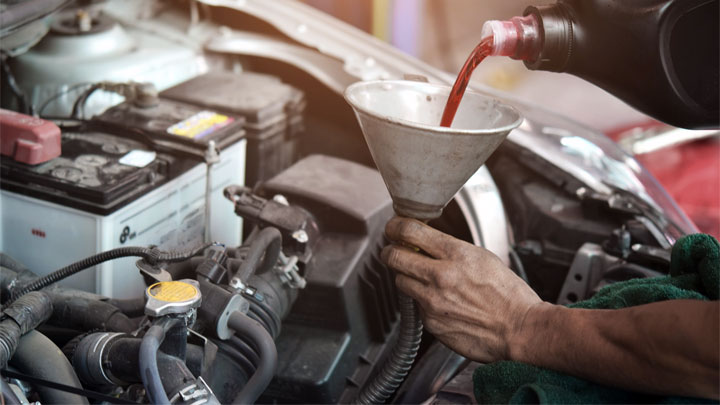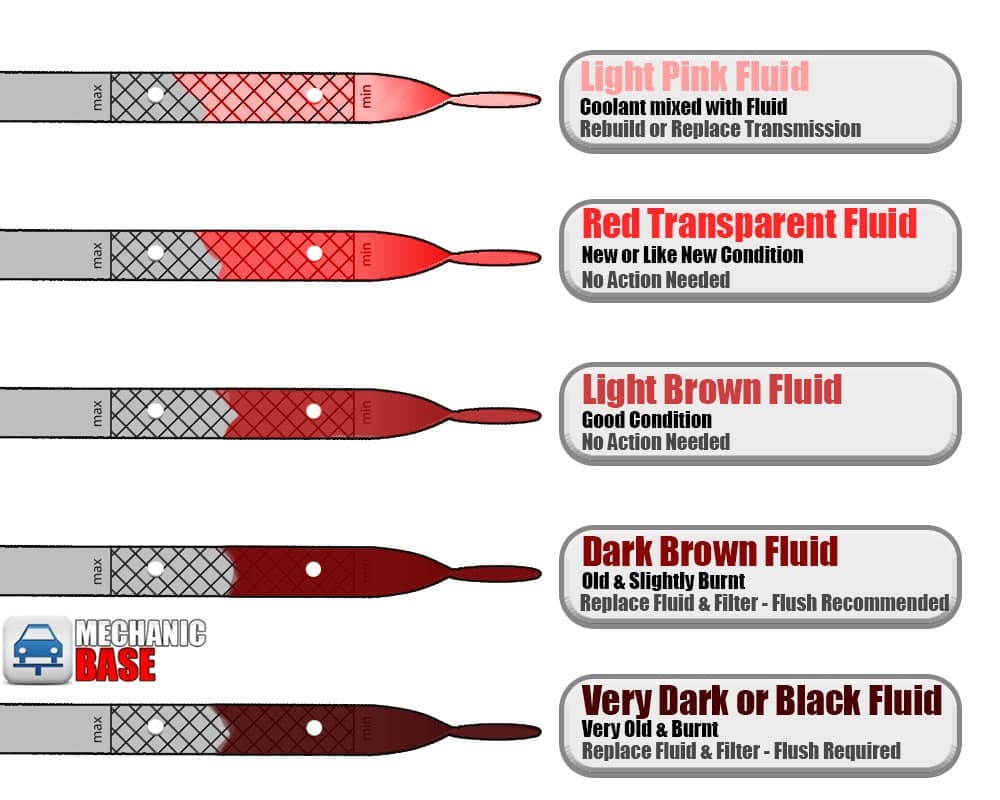

Keep Your Transmission Smooth: When to Change Your Car’s Transmission Fluid
Maintaining a healthy transmission is crucial for the longevity and performance of your car. Ignoring regular maintenance can lead to costly repairs down the line. This comprehensive guide will detail when you should change your car’s transmission fluid, how to identify potential problems, and the preventative measures you can take. We’ll explore the critical role transmission fluid plays in smooth gear shifting, the importance of following manufacturer recommendations, and the potential consequences of neglecting timely maintenance. We’ll also cover specific scenarios and provide actionable steps to ensure the smooth operation of your vehicle.
Understanding Transmission Fluid
The Vital Role of Transmission Fluid
Transmission fluid is a vital component of any vehicle’s transmission system. It acts as a lubricant, carrying heat away from moving parts, and ensuring smooth gear shifts. Without adequate transmission fluid, the transmission gears can overheat and seize up, leading to costly repairs and potential transmission failure. Fluid also reduces friction between moving parts, promoting efficient operation. Without proper lubrication, significant wear can quickly occur, making the transmission susceptible to damage.
Identifying Transmission Fluid Issues
Signs of low or contaminated transmission fluid can include strange noises while driving, difficulty shifting gears, or a noticeable burning smell coming from the vehicle. Regular inspection and maintenance are crucial to detect potential problems early, preventing them from escalating into serious issues. Don’t ignore these warning signs. Early detection can be a game-changer in saving costs and preventing the vehicle from breaking down completely.
Symptoms of a Failing Transmission
Over time, transmission fluid degrades due to wear and heat buildup. This degradation can lead to various problems. One common symptom is a slipping transmission, where gears do not engage properly. Abnormal noises during acceleration or deceleration, such as grinding or whining, indicate internal damage. Moreover, changes in shift patterns or difficulty in shifting can be crucial warning signs of a failing transmission.
The Importance of Regular Transmission Fluid Changes
Maintaining Transmission Health Through Regular Changes
Regular transmission fluid changes are essential for maintaining the health and longevity of your transmission. Following the manufacturer’s recommended intervals ensures that the fluid remains clean and at the proper viscosity, reducing friction and promoting smooth gear shifts. This preventive maintenance can significantly extend the life of your transmission, preventing costly repairs in the future.
Understanding Manufacturer Recommendations
Your vehicle’s owner’s manual provides specific guidelines on transmission fluid change intervals. These recommendations are based on factors like vehicle type, driving conditions, and the type of transmission your vehicle has. Always refer to your owner’s manual for detailed information. Regularly checking your owner’s manual can save you significant trouble and costly repairs.
Choosing the Right Transmission Fluid
Using the correct transmission fluid type is equally critical. Using incorrect fluids can cause significant damage to your transmission. Using a fluid not recommended by the vehicle manufacturer is often not just ineffective; it can also lead to premature failure and potential expensive repairs.
Identifying When to Change Transmission Fluid
Recognizing the Signs of Low Fluid
Several factors can cause low transmission fluid levels. If your fluid levels drop significantly, it can lead to serious mechanical problems. Inspecting your fluid levels regularly is crucial for preventing major issues. Visual inspection of the dipstick and checking the fluid levels are critical to preventing these issues.
Understanding Driving Habits and Transmission Fluid
Driving conditions and habits can greatly influence the lifespan of your transmission fluid. Harsh driving, frequent stop-and-go traffic, or towing heavy loads can accelerate the breakdown of transmission fluid. Proactive maintenance in these circumstances is often critical for extending your vehicle’s life.
Addressing Potential Issues Early
By adhering to recommended maintenance schedules and understanding the signs of low or contaminated fluid, you can address potential issues early. Regular fluid checks and timely changes can be game changers, preventing damage and extending your transmission’s lifetime. Taking care of your vehicle early on can be much more cost-effective than dealing with later, more costly repairs.
Advanced Transmission Maintenance Strategies
Professional Transmission Fluid Service
Trusting a professional mechanic for transmission maintenance is often recommended. Experienced technicians are equipped to accurately diagnose potential issues and perform comprehensive fluid changes. This can prevent potential complications and issues that might arise from DIY procedures.
Maintaining optimal Transmission Health
Beyond changing fluids, proactive measures like using the proper fluid type, ensuring adequate coolant levels, and maintaining the correct tire pressure can contribute to overall transmission health. All these factors work together to ensure the smooth, consistent operation of your vehicle.
Understanding Your Vehicle’s Specific Needs
Understanding your vehicle’s particular specifications is critical in providing comprehensive care. Specific guidelines in your owner’s manual are crucial in this regard.
Advanced Topics for Maintenance
Regular Fluid Checks
Regular checks of your transmission fluid are crucial to prevent issues with your transmission. Inspecting the fluid level and condition can help to prevent major problems and extend the life of your transmission.
Importance of Proper Fluid Type
Using the correct type of transmission fluid is paramount. Incorrect fluid can cause serious damage and shorten the life of your transmission.
Potential Issues and Preventative Measures
Understanding potential issues like abnormal noises, or slipping gears is crucial. Recognizing these signs early on allows for proactive maintenance to prevent potential problems from escalating.
Frequently Asked Questions
What are the signs that my transmission fluid needs changing?
Several signs can indicate that your transmission fluid needs changing. These include slipping gears, unusual noises like grinding or whining, difficulty shifting, reduced performance, and a burning smell emanating from the vehicle. If you notice any of these signs, it’s crucial to have your transmission inspected by a qualified mechanic. Proactive maintenance can save you from costly repairs in the future.
How often should I change my transmission fluid?
The frequency for changing your transmission fluid depends on your vehicle’s make and model, as well as your driving habits. Consult your vehicle’s owner’s manual for specific recommendations. Generally, some vehicles require transmission fluid changes every 30,000 to 100,000 miles, or every 2 to 3 years, depending on the type of vehicle and driving conditions. However, more frequent changes might be necessary for vehicles that are frequently driven in extreme conditions or heavy loads.
Can I use any transmission fluid in my car?
No, you should not use any transmission fluid in your car. Always use the specific type of transmission fluid recommended by the vehicle manufacturer. Using the wrong type can severely damage your transmission, potentially leading to expensive repairs or even complete replacement. Always refer to your owner’s manual for the correct fluid specifications and consult a qualified mechanic if you have any doubts.
In conclusion, maintaining a smooth transmission is crucial for optimal car performance and longevity. Regular transmission fluid changes, ideally following the manufacturer’s recommendations, are key to preventing premature wear and tear. By understanding the signs of a failing transmission and proactively addressing potential issues, you can avoid costly repairs and extend the life of your vehicle. Schedule your transmission fluid change today! For further clarification or to schedule service, contact your local auto repair shop or visit their website.